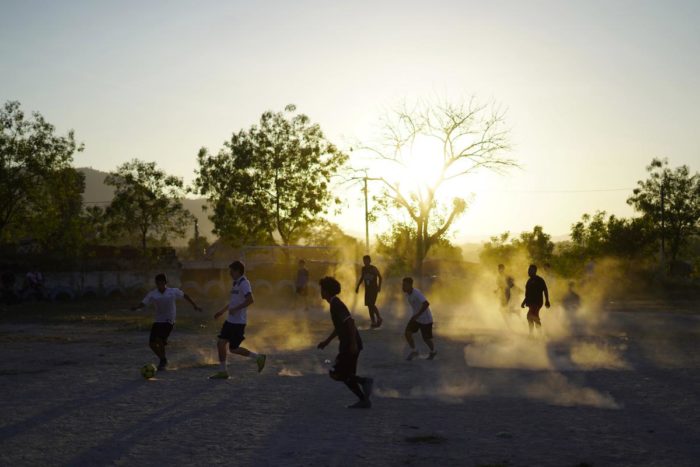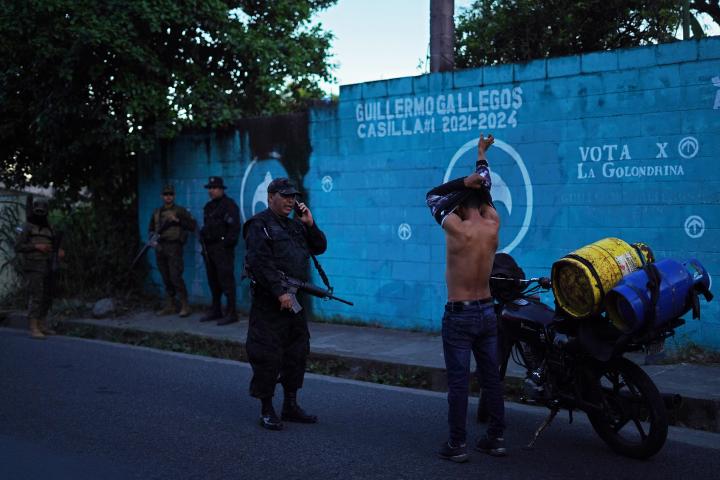This article is based on a more detailed and well-researched report, Régimen de Bukele desarticula a las pandillas en El Salvador by El Faro journalists Carlos Martínez, Efren Lemus y Óscar Martínez.
You can also listen to the original article in full, in Spanish, on El Faro Audio:
Scenes witnessed in recent weeks by El Faro reporters speak to a new, unknown life for thousands who can cross streets, talk to neighbors, and move on with their lives without gang members subduing them with a gun to their heads. This is, undoubtedly, an extraordinary change.

But it’s worth remembering that gangs weren’t born out of thin air. They were the crudest, most violent expression of a broken, corrupt society, one that gives limited opportunities to most of the population. It is a society marked by poverty, inequality, the impossibility of social mobility, lack of access to fundamental services like health, education, adequate housing, and jobs, and the nonconservation of precarious natural resources.
Those conditions haven’t changed. The current government has no plan for such structural changes capable of shedding the conditions under which these ghoulish expressions started. The fertile soil that allowed gangs to spawn and take root in the underprivileged barrios of most of El Salvador are still there. Repression is not a sustainable solution.
The Bukele regime went from negotiating with organized crime to repressing it only when the pact fell apart. The Army and the Police swept through communities under a state of exception that allowed them to act like prosecutors and judges and arrest without a warrant any citizen they considered a suspect.
Human rights violations have been massive. Thousands of innocents languish in overcrowded prisons. Scores have died in pre-trial detention. Meanwhile, the president boasts of a giant, newly-built jail by a handpicked building company that was given a contract with no contest.
We Salvadorans gave up the rights of presumed innocence, legal counsel, fair trial, and to institutions that punish government abuses. We gave up the rule of law that comes with abiding by laws and the Constitution. We gave up freedom of expression, freedom to dissent, separation of powers, transparency in public finances, and mechanisms to fight corruption. We gave up alternation of power. We’re back to corrupt chieftainship.
The visible absence of gang structures, for the first time in a long while, is a fundamental change in the life of thousands of Salvadorans. But the price we’ve had to pay for it is sky-high. The cure could be as harmful as the disease.
Main image: On 2 December 2022, the government set up a security cordon around Margarita township and the Las Campaneras district. These were previously regarded as two of the most dangerous areas of Soyapango municipality. Everyone found on the street was stopped by a group of police or soldiers and, as the photograph shows, some were required to show that they did not have tatoors. Photo: Víctor Peña, El Faro.

